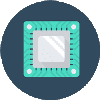Introduction:
Decentralized Autonomous Organizations (DAOs) have emerged as a groundbreaking innovation in the realm of blockchain and cryptocurrency. These entities operate on the principles of decentralized governance, enabling participants to collectively make decisions and govern the organization. DAO governance has gained significant traction, offering a wide array of benefits that transcend traditional centralized models. In this blog post, we will explore the transformative advantages of DAO governance and how it is reshaping the landscape of organizational decision-making.
Decentralization and Inclusivity:
One of the primary advantages of DAO governance is its commitment to decentralization. Traditional organizations are often centralized, with decision-making concentrated in the hands of a few individuals or a board. DAOs on the other hand, distribute decision-making power among participants, fostering inclusivity and reducing the influence of a single entity. This decentralized structure empowers a diverse range of stakeholders, allowing for more inclusive and representative decision-making.
Transparency and Trust:
DAOs operate on blockchain technology, which inherently provides transparency. All transactions and decisions are recorded on the blockchain, creating an immutable and auditable trail. This transparency fosters trust among participants, as they can verify the organization's activities and ensure that decisions align with the collective interests. Trust is a crucial element in any organization, and DAO governance leverages blockchain to enhance it.
Global Collaboration:
DAO governance enables global collaboration without the limitations of geographical boundaries. Participants from different parts of the world can contribute to decision-making processes, bringing diverse perspectives to the table. This global collaboration not only enriches the quality of decisions but also expands the reach and impact of the organization.
Smart Contracts for Efficiency:
DAOs often utilize smart contracts to automate decision-making processes. Smart contracts are self-executing contracts with the terms of the agreement directly written into code. This automation reduces the need for intermediaries and streamlines decision implementation, leading to increased efficiency and faster response times.
Immutable Decision Record:
Decisions made within a DAO are recorded on the blockchain and are immutable. Once a decision is made, it cannot be altered retroactively. This ensures a clear and permanent record of governance decisions, providing accountability and preventing the manipulation of past decisions.
Token-Based Governance and Incentives:
Many DAOs implement token-based governance, where participants hold tokens that represent their voting power. This system aligns the interests of participants with the success of the organization. Additionally, token-based incentives can be introduced to reward active contributors, fostering a dynamic and engaged community.
Resilience and Security:
DAOs are inherently resistant to single points of failure. The decentralized nature of blockchain ensures that the organization is not vulnerable to attacks on a central server. This resilience enhances the security of the governance system, making it more robust and resistant to external threats.
Conclusion:
Decentralized Autonomous Organization governance represents a paradigm shift in how organizations can be structured and governed. From promoting inclusivity and transparency to enabling global collaboration and efficiency through smart contracts, the benefits of DAO governance are diverse and impactful. As blockchain technology continues to evolve, DAOs are likely to play an increasingly significant role in shaping the future of organizational decision-making. Embracing these benefits can lead to more resilient, transparent, and democratic forms of governance in the ever-evolving landscape of decentralized systems.





0 Comments